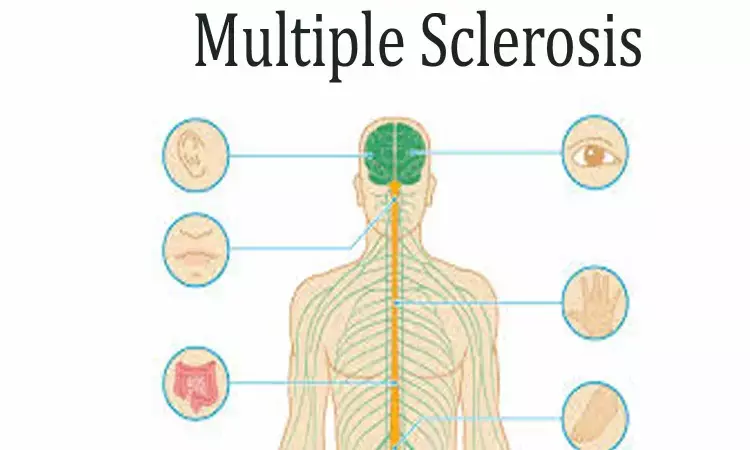- Home
- Medical news & Guidelines
- Anesthesiology
- Cardiology and CTVS
- Critical Care
- Dentistry
- Dermatology
- Diabetes and Endocrinology
- ENT
- Gastroenterology
- Medicine
- Nephrology
- Neurology
- Obstretics-Gynaecology
- Oncology
- Ophthalmology
- Orthopaedics
- Pediatrics-Neonatology
- Psychiatry
- Pulmonology
- Radiology
- Surgery
- Urology
- Laboratory Medicine
- Diet
- Nursing
- Paramedical
- Physiotherapy
- Health news
- Fact Check
- Bone Health Fact Check
- Brain Health Fact Check
- Cancer Related Fact Check
- Child Care Fact Check
- Dental and oral health fact check
- Diabetes and metabolic health fact check
- Diet and Nutrition Fact Check
- Eye and ENT Care Fact Check
- Fitness fact check
- Gut health fact check
- Heart health fact check
- Kidney health fact check
- Medical education fact check
- Men's health fact check
- Respiratory fact check
- Skin and hair care fact check
- Vaccine and Immunization fact check
- Women's health fact check
- AYUSH
- State News
- Andaman and Nicobar Islands
- Andhra Pradesh
- Arunachal Pradesh
- Assam
- Bihar
- Chandigarh
- Chattisgarh
- Dadra and Nagar Haveli
- Daman and Diu
- Delhi
- Goa
- Gujarat
- Haryana
- Himachal Pradesh
- Jammu & Kashmir
- Jharkhand
- Karnataka
- Kerala
- Ladakh
- Lakshadweep
- Madhya Pradesh
- Maharashtra
- Manipur
- Meghalaya
- Mizoram
- Nagaland
- Odisha
- Puducherry
- Punjab
- Rajasthan
- Sikkim
- Tamil Nadu
- Telangana
- Tripura
- Uttar Pradesh
- Uttrakhand
- West Bengal
- Medical Education
- Industry
Masitinib may delay disability progression in multiple sclerosis

Spain: In a new study, it was found that masitinib 4.5 mg/kg/d reduced disability progression in individuals with patients with primary progressive multiple sclerosis (PPMS) or patients with inactive secondary progressive MS (nSPMS). The findings of this study were published in the journal Neurology: Neuroimmunology & Neuroinflammation.
Masitinib is a tyrosine kinase inhibitor that targets innate immune cells (mast cells and microglia) in the pathogenesis of progressive multiple sclerosis. As a result, Patrick Vermersch and colleagues undertook this trial to evaluate oral masitinib in individuals with progressive multiple sclerosis who were advancing but not clinically active.
This 116 hospital clinics and specialist MS facilities in 20 countries double-blind, randomized, placebo-controlled, two-parallel-group experiment compared two dosage levels of masitinib against an equal placebo. An automated technique was used to produce central randomization (2:1) with minimization. physicians, patients, and outcome assessors were all kept in the dark about which therapy group they were in, nSPMS or PPMS who had not relapsed for 2 years, were aged 18–75 years, had a baseline Expanded Disability Status Scale (EDSS) of 2.0–6.0, and were treated for 96 weeks, independent of time from start. The primary endpoint was the change in total EDSS from baseline using repeated assessments, with positive values suggesting more clinical deterioration. All patients who were randomly assigned and treated were evaluated for efficacy and safety.
The key findings of this study were as follow:
1. A total of 611 patients were randomly assigned to one of two groups: 301 in the 4.5 mg/kg/d parallel-group and 310 in the up titrated 6.0 mg/kg/d parallel group.
2. Masitinib (4.5 mg/kg/d) (n = 199) outperformed placebo (n = 101) in terms of the primary end goal, 0.001 vs 0.098, with a between-group difference of 0.097.
3. Masitinib's safety profile was constant (nausea, diarrhea, hematologic problems, and rash), with no increased risk of infection.
4. The independent up titrated masitinib 6.0 mg/kg/d parallel group's efficacy findings were unclear, and no new safety signal was found.
In conclusion, the study provides Class II evidence that masitinib at 4.5 mg/kg/d decreased progression of disability, measured by the EDSS, in adults with PPMS or patients with nSPMS (with no exacerbations in the last 2 years); however, there is a need for further validation of these findings via a confirmatory phase 3 study, in part because neuroimaging data were not collected during the current study and also due to a lack of signal on secondary endpoints.
This study provides Class II evidence that masitinib 4.5 mg/kg/d decreased progression of disability, measured by the EDSS, in adults with PPMS or patients with nSPMS (with no exacerbations in the last 2 years).
Reference:
Vermersch, P., Brieva-Ruiz, L., Fox, R. J., Paul, F., Ramio-Torrenta, L., Schwab, M., Moussy, A., Mansfield, C., Hermine, O., & Maciejowski, M. (2022). Efficacy and Safety of Masitinib in Progressive Forms of Multiple Sclerosis. In Neurology - Neuroimmunology Neuroinflammation (Vol. 9, Issue 3, p. e1148). Ovid Technologies (Wolters Kluwer Health). https://doi.org/10.1212/nxi.0000000000001148
Keywords: multiple sclerosis, masitinib, diarrhea, nausea, exacerbations, tyrosine kinase inhibitor, inflammation, immunology, neurology,
Medical Dialogues consists of a team of passionate medical/scientific writers, led by doctors and healthcare researchers. Our team efforts to bring you updated and timely news about the important happenings of the medical and healthcare sector. Our editorial team can be reached at editorial@medicaldialogues.in.
Dr Kamal Kant Kohli-MBBS, DTCD- a chest specialist with more than 30 years of practice and a flair for writing clinical articles, Dr Kamal Kant Kohli joined Medical Dialogues as a Chief Editor of Medical News. Besides writing articles, as an editor, he proofreads and verifies all the medical content published on Medical Dialogues including those coming from journals, studies,medical conferences,guidelines etc. Email: drkohli@medicaldialogues.in. Contact no. 011-43720751


